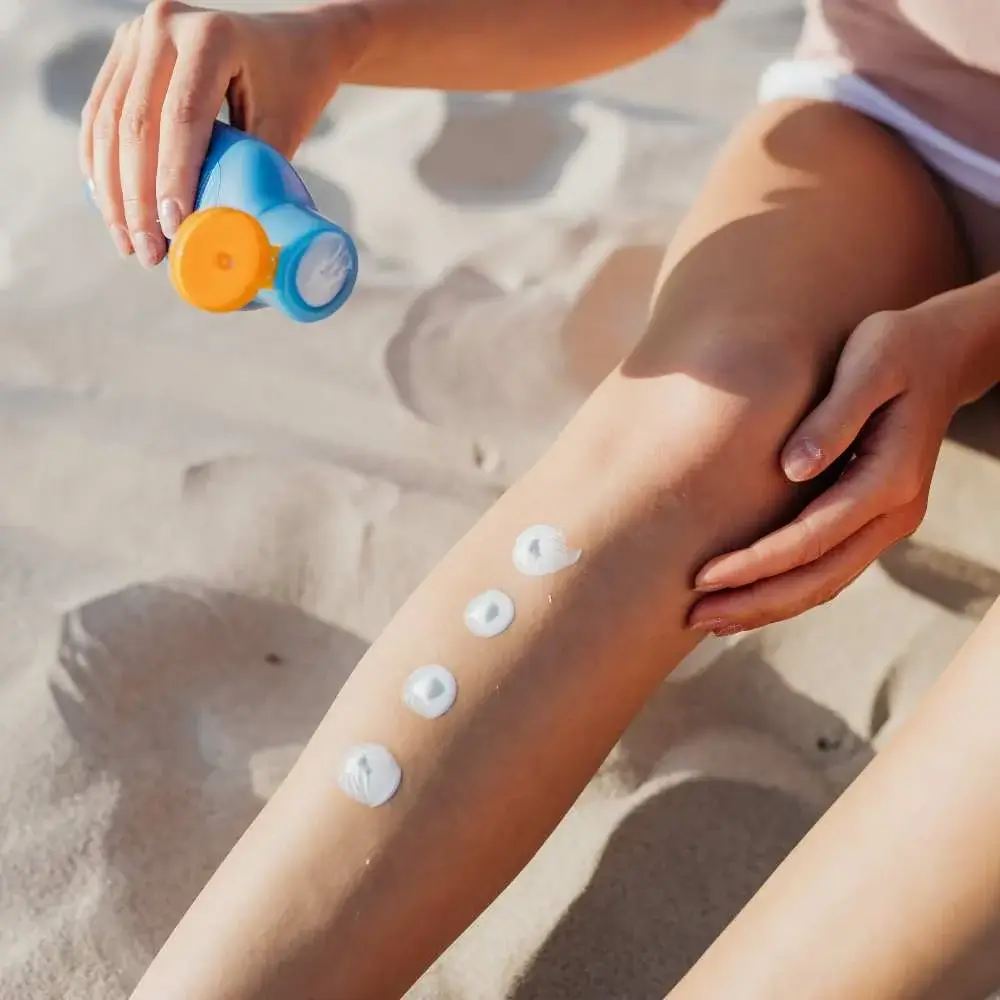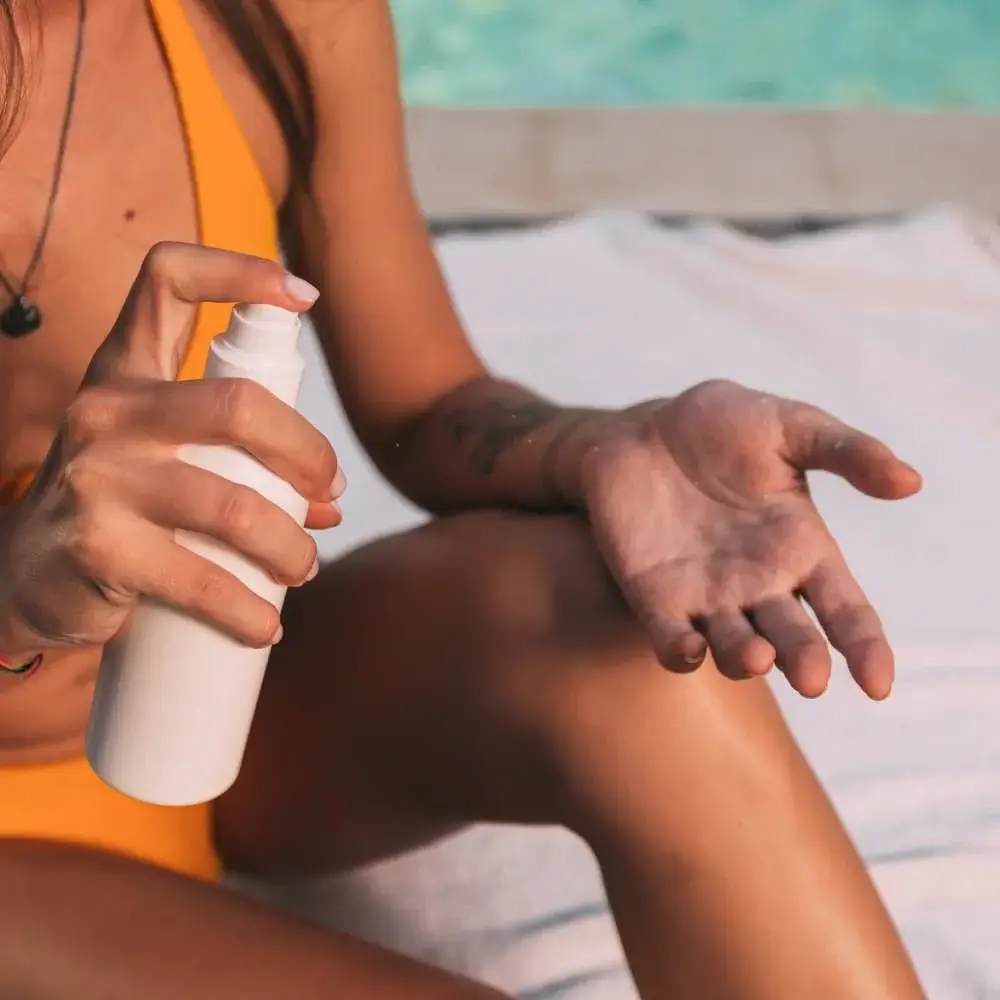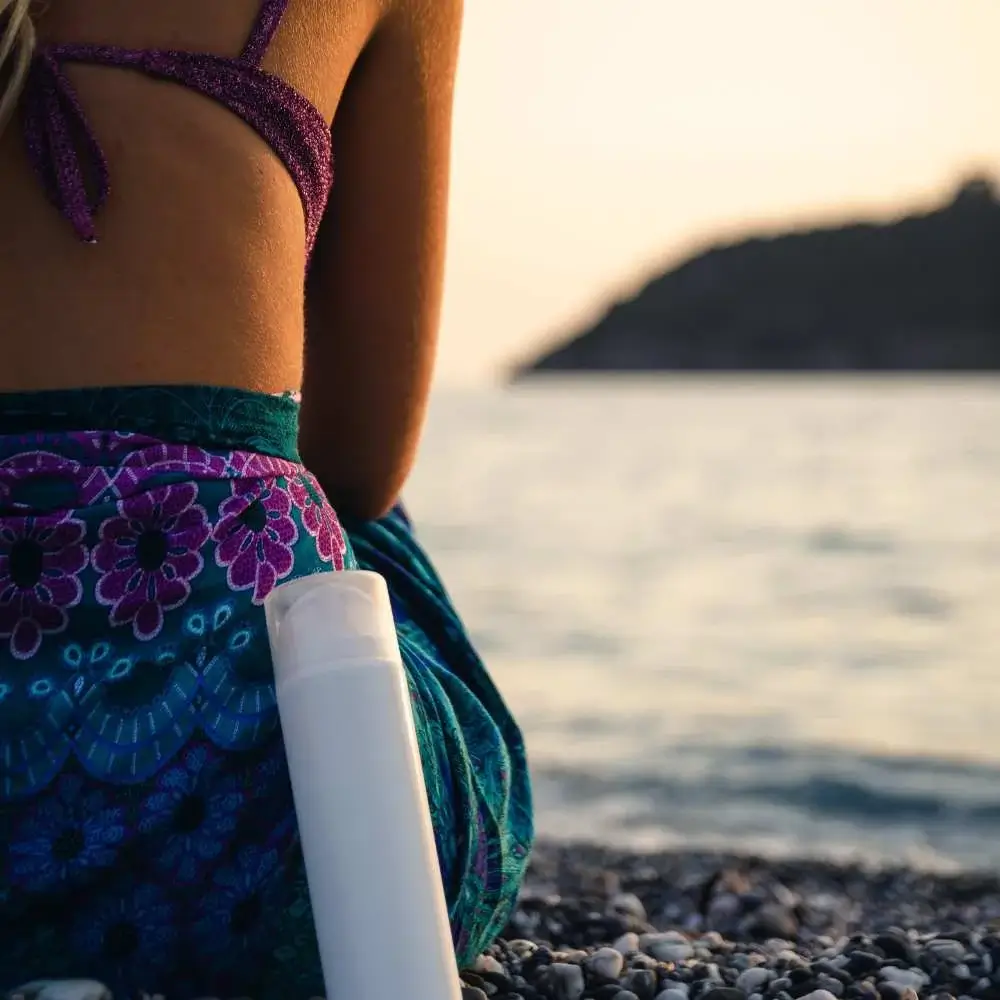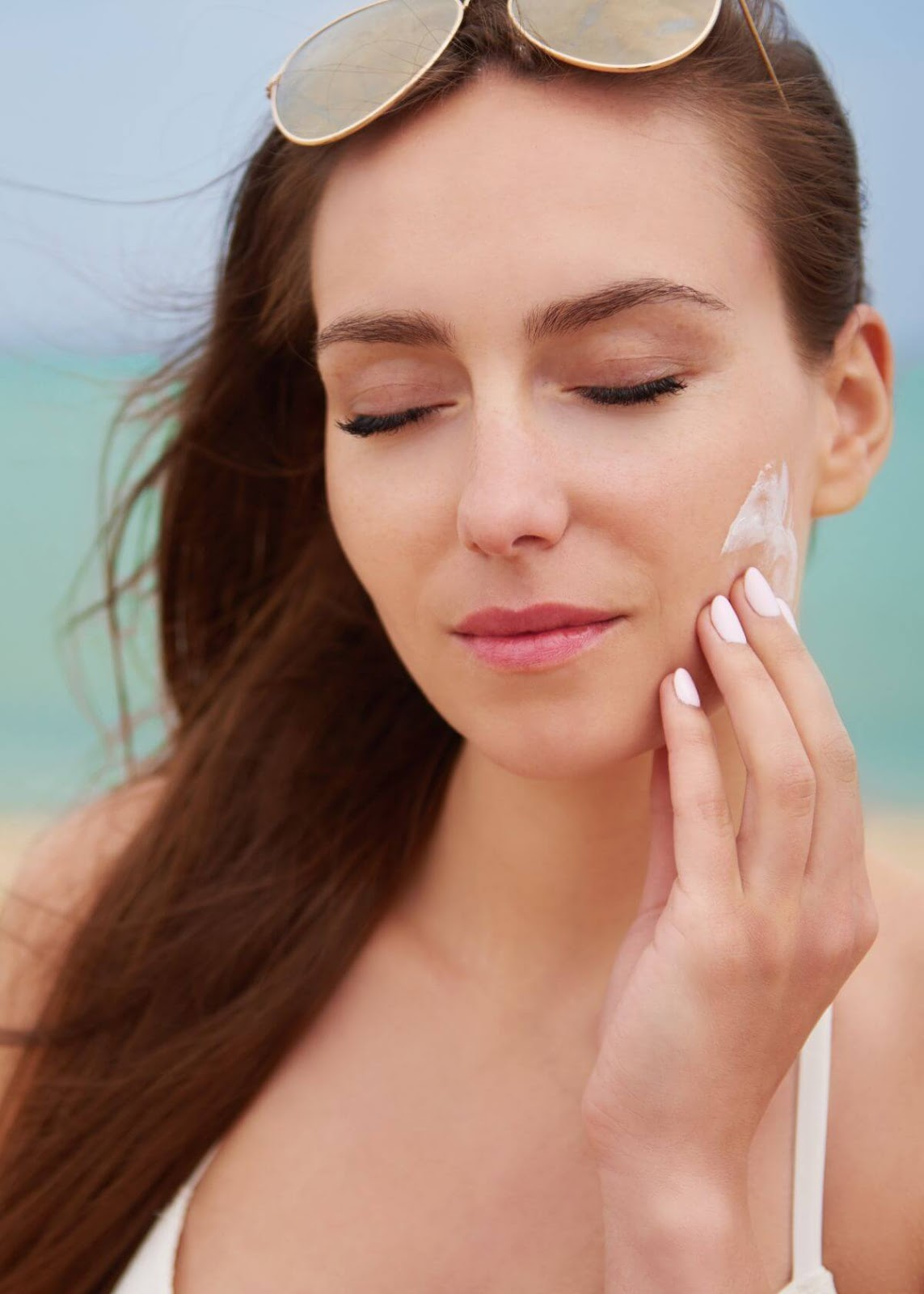Have you ever been sun-kissed a little too passionately? Remember the time when you slathered on a layer of sunscreen, dove into the water, and emerged looking like a lobster? Yes, we've all been there. Welcome to the world of Water-Resistant Sunscreen, your new best friend this summer. This article is set to explore the magic behind these wonder potions that promise to protect your skin even while you're swimming. Stay tuned as we dive deep (pun intended) into the science, benefits, and even some myths surrounding water-resistant sunscreen. So, grab your beach towel, put on your sunglasses, and let's get ready to bask in the sun, without the burn!

Splish Splash, Your Skin's Taking a Bath: A Fun Guide to Water-Resistant Sunscreen
Ready to take on the sun this summer without turning into a tomato? Say hello to your new beach buddy, the water-resistant sunscreen. But wait! How do you pick the one that’s just right for your skin and lifestyle? Don't sweat it (pun intended), we’ve got you covered. In this blog post, we’ll guide you on a fun-filled journey to find your perfect sunscreen match that will keep your skin glowing all summer long.
The Sunscreen Showdown: Chemical vs. Physical
Choosing a water-resistant sunscreen is like picking a dessert – there's a flavor for everyone. There are two main types up for grabs: chemical and physical. Think of chemical sunscreens as little UV-ray ninjas, using ingredients like oxybenzone and avobenzone to tackle harmful rays before they reach your skin. On the flip side, physical sunscreens are like your skin's personal bodyguards, using minerals like titanium dioxide or zinc oxide to shield you from UVA and UVB rays. If your skin is as sensitive as a baby panda, physical sunscreens may be your go-to as they don't contain any potential skin-irritating chemicals.
SPF 101: Finding Your Perfect Number
Next up on our sunscreen safari is deciding your ideal SPF level. In the world of sun protection, SPF is like your report card score against UVB rays - the nasties that cause sunburns. For everyday use, you should aim for an SPF of 15 or higher, but if you're planning on swimming or engaging in a summer workout outdoors, an SPF 30 or above is your best bet.
Making a Splash with Water Resistance
Lastly, ensure your chosen sunscreen proudly wears the 'water-resistant' badge so that it doesn't wave goodbye at the first sight of water or sweat. The best of the bunch can resist water for up to 80 minutes - but always check the label! Remember, no sunscreen is completely waterproof, so reapply after your mermaid moments or intense beach volleyball matches for optimal protection against those sneaky UV rays.
Finding your summer skin savior doesn't have to be a chore. By understanding sunscreen types, picking your SPF level, and ensuring it's water-resistant, you're set for a sun-safe summer. And remember, apply generously every two hours (or more if you're swimming or sweating) to keep your skin smiling under the sun. Happy sunscreen shopping!
And if you're still unsure about which water-resistant sunscreen to choose, don't fret. We've done the homework for you and picked out the best of the best that promise to protect your skin from UVA and UVB rays. So what are you waiting for? Your perfect sunscreen is just a click away!

Embracing the Sun: Why Choose Water-Resistant Sunscreen?
Think back to your last beach vacation.
You applied sunscreen, played in the waves, and ended up with a nasty sunburn.
Sounds familiar?
This is where water-resistant sunscreen comes into play.
Choosing a water-resistant sunscreen is like picking an umbrella that doesn’t flip inside out in the rain.
It's designed to stick around, protecting your skin even when you're making a splash.
The Science Behind Water-Resistant Sunscreen
So, what makes water-resistant sunscreen so special?
It's all about the formulation.
Water-resistant sunscreens are designed to adhere better to your skin, resisting being washed off by sweat or water.
Imagine them as the sticky notes of the sunscreen world.
They stay put, reminding you that your skin is protected, even when you're diving into the deep end.
The Benefits of Water-Resistant Sunscreen
Ever wondered why water-resistant sunscreen should be your go-to?
Well, their benefits are as plentiful as grains of sand on a beach.
Firstly, they offer persistent protection.
Whether you're sweating it out on a hike or doing laps in the pool, water-resistant sunscreen ensures your skin remains shielded from harmful UV rays.
Secondly, they're perfect for active individuals.
If you enjoy outdoor activities, water-resistant sunscreen is your skin's best defense against the sun.
Lastly, they reduce the need for frequent reapplication.
While no sunscreen is completely waterproof, water-resistant formulas do buy you more time between applications.

The Ultimate Guide to Choosing the Right Water-Resistant Sunscreen for Your Skin Type
Let's set the scene.
You're standing in front of a towering aisle full of sunscreens at your local store.
Your mission is to find the perfect water-resistant sunscreen.
But where do you start?
Choosing the right water-resistant sunscreen can feel as tricky as picking the winning lottery numbers.
But don't fret!
We're here to guide you through the process.
Understanding Your Skin Type
Before you dive into the world of water-resistant sunscreen, you need to understand your skin type.
Think of it like choosing the right outfit.
You wouldn't wear a thick winter coat in the blazing summer heat, right?
The same principle applies to your sunscreen.
If you have oily skin, you might want to opt for water-resistant sunscreen that is oil-free and non-comedogenic.
For those with dry skin, a moisturizing water-resistant sunscreen could be your best bet.
Sensitive skin?
Look for a physical or mineral-based water-resistant sunscreen.
If you're prone to acne, choose a water-resistant sunscreen that won’t clog your pores.
The SPF Factor
When it comes to water-resistant sunscreen, the SPF factor plays a significant role.
It's like the horsepower of your car - the higher the number, the stronger the protection.
For everyday use, an SPF of at least 15 is recommended.
But if you're planning to swim or engage in outdoor activities, go for an SPF of 30 or above.
Remember, your water-resistant sunscreen is your shield against the sun's harmful rays.
Choose wisely.
Reading the Labels
Labels on water-resistant sunscreen bottles can sometimes feel like a foreign language.
But they hold the key to choosing the right product.
Look for terms like "broad-spectrum" (it protects against both UVA and UVB rays), and of course, "water-resistant".
Be wary of misleading terms like 'waterproof' or 'sweat-proof'.
No sunscreen can offer 100% protection from water or sweat.

When and How to Apply
Now that you've chosen your perfect water-resistant sunscreen, it's time to apply it.
Think of it as painting a masterpiece.
You want to cover every nook and cranny.
Apply your sunscreen at least 15 minutes before heading outdoors.
And don't forget to reapply every two hours, or immediately after swimming or sweating.
Choosing the right water-resistant sunscreen doesn't have to feel like a Herculean task.
By understanding your skin type, checking the SPF, reading the labels, and knowing when and how to apply, you'll be well-equipped to make an informed choice.
So go ahead, embrace the sun with your perfect water-resistant sunscreen.
Key Ingredients to Look For
When choosing a water-resistant sunscreen for sensitive skin, the ingredient list is your treasure map.
Here are some key ingredients to look for:
Zinc Oxide and Titanium Dioxide: These are the stars of physical sunscreens. They provide excellent sun protection and are gentle on sensitive skin.
Niacinamide: This ingredient is known for its anti-inflammatory properties, making it great for calming sensitive skin.
Hyaluronic Acid: If your sensitive skin is also dry, hyaluronic acid can provide much-needed hydration.

Ingredients to Avoid
Just as important as knowing what to look for is knowing what to avoid.
Steer clear of water-resistant sunscreens containing alcohol, fragrance, or oxybenzone.
These can potentially irritate sensitive skin.
Test Before You Apply
Finally, always do a patch test before applying a new water-resistant sunscreen.
Apply a small amount on your inner arm and wait 24 hours to see if any reaction occurs.
Choosing the right water-resistant sunscreen for sensitive skin might seem daunting.
But with the right knowledge, it becomes a manageable task.
Remember, your skin is unique.
What works for others might not work for you.
So take your time, do your research, and find that perfect water-resistant sunscreen that makes your skin feel happy and protected.

Your Ultimate FAQ Guide to Water-Resistant Sunscreen!
What does it mean by water resistant sunscreen?
With regular sunscreen, you might as well have left your skin's shield back on the shore! But with water-resistant sunscreen, it's a whole different story. It's like your sunscreen has its own little life jacket, helping it stay on your skin, even when you're swimming or sweating. However, keep in mind, it's not completely invincible. You still need to reapply it every 40 to 80 minutes (depending on what the label says) because, like any good thing, it doesn't last forever. So, in a nutshell, water-resistant sunscreen is your skin's best buddy for those splash-filled, sweaty adventures under the sun!
Are water resistant sunscreens better?
Well, think of it like this. Imagine you're a cake (stay with me here), and the icing is your sunscreen. Now, regular sunscreen is like a delicious buttercream frosting. It's great for a while but melt under heat or wash away easily. On the other hand, water-resistant sunscreen? That's like a sturdy fondant. It can handle a little heat and moisture without dissolving into a puddle. So if you're planning on swimming, sweating, or generally being a busy bee under the sun, water-resistant sunscreen comes out on top. It stays on your skin longer, giving you more protection. But remember, no sunscreen is perfect. Even the water-resistant kind needs reapplying every couple of hours to keep you safe from those pesky UV rays. So, in essence, whether water-resistant sunscreen is 'better' really depends on what kind of party you're bringing your cake to!
Can you swim with water resistant sunscreen?
Well, here's the scoop! Water-resistant sunscreen is like your loyal buddy who's always up for a swim and sticks with you even when things get a little wet. So yes, you can absolutely swim with water-resistant sunscreen! However, remember it's not a superhero with an invincibility cloak. After 40 to 80 minutes of swimming or sweating (check your product's label), your sunscreen will start to wave the white flag, and it's time for you to reapply. So dive in, enjoy those waves, and keep your skin safe with your water-resistant sunscreen!
Can I use waterproof sunscreen everyday?
Here's the deal: Waterproof sunscreen is like that durable raincoat you'd wear in a storm. It's designed to withstand water and sweat for longer periods, making it perfect for beach days, sweaty workouts, or singing in the rain (we don't judge!). But on regular, less adventurous days, your usual sunscreen should do the trick. Remember, no sunscreen (not even the waterproof kind!) can fight those pesky UV rays all day long. So, whether you're using waterproof or regular sunscreen, be sure to reapply every two hours for maximum protection. In summary, yes, you can use waterproof sunscreen every day, but it might be overkill if you're not planning on getting wet or breaking a sweat. Stay sun-safe, my friend!
Does water resistant sunscreen clog pores?
Here's the lowdown: Water-resistant sunscreen is designed to stick around during your swim or sweat session, but that doesn't necessarily mean it's going to clog your pores. The key is to look for products labeled "non-comedogenic." This fancy term means it's specifically formulated not to block your pores - it's like a 'Do Not Enter' sign for pore-clogging ingredients! So, can you enjoy water-resistant sun protection without inviting unwanted breakouts? Absolutely! Just keep an eye out for "non-comedogenic" on the label, and your skin will be singing your praises. Now, go forth and enjoy the sun, protected and pore-happy!







